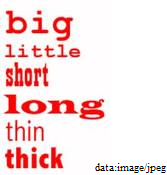DEFINITE ARTICLE
THE
Articles in English are invariable. That is, they do not
change according to the gender or number of the noun they refer to, e.g. the
boy, the woman, the children
'The' is
used:
1. to refer to something which
has already been mentioned.
|
An elephant and a mouse fell in love.
The mouse loved the
elephant's long trunk,
and the elephant loved the
mouse's tiny nose.
|
2. when both the speaker and listener know what is being talked about,
even
if it has not been mentioned
before.
|
'Where's the
bathroom?'
'It's on the first floor.'
|
3. in sentences or clauses where we define or identify a particular
person or
object:
|
The man who wrote this book is
famous.
My house is the one with a blue door.'
'Which car
did you scratch?' 'The red one.
|
4. to refer to objects we regard
as unique:
|
the sun, the moon, the world
|
5. before superlatives and
ordinal numbers: (see Adjectives)
|
the highest building, the first page, the last chapter.
|
6. with adjectives, to refer to
a whole group of people:
|
the
Japanese (see Nouns - Nationalities), the old
|
7. with names of geographical
areas and oceans:
|
the
Caribbean, the Sahara, the Atlantic
|
8. with decades, or groups of
years:
|
she grew up in the seventies
|

